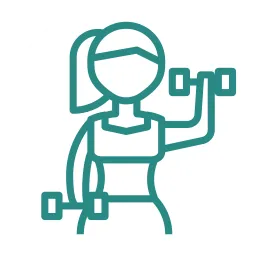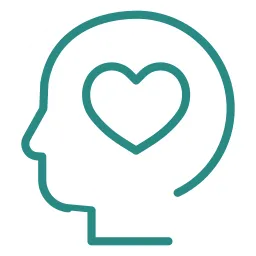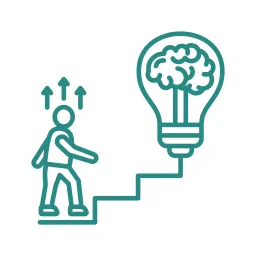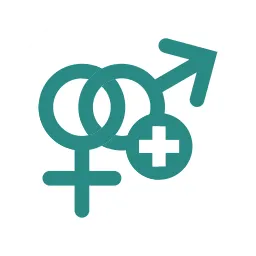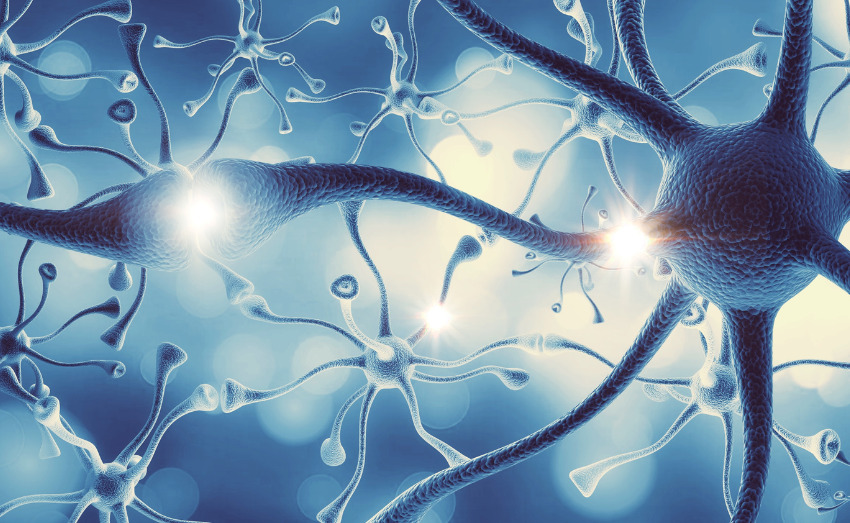The nervous system is a complex that controls and synchronizes the functions of the body. It consists of two primary parts: the central nervous system, which includes the brain and spinal cord, and the peripheral nervous system, which connects the central nervous system to the rest of the body.
Central Nervous System
The central nervous system, comprising the brain and spinal cord, serves as the central processing center for the entire body. The brain manages and coordinates our actions, thoughts, and emotions. Meanwhile, the spinal cord is responsible for transmitting signals to and from the brain and overseeing reflex actions.
The Brain
The brain is segmented into various sections: the cerebrum, cerebellum, and brainstem, each with a distinct role:
- Cerebrum: The most substantial segment of the brain, it governs voluntary movements, speech, sensory perception, cognition, and memory.
- Cerebellum: This section is in charge of coordinating muscular activity and maintaining posture and equilibrium.
- Brainstem: Serving as a bridge connecting the cerebrum and cerebellum to the spinal cord, it regulates numerous automatic functions such as respiration, heart rate, body temperature, sleep-wake cycles, digestion, and reflex actions like sneezing, coughing, swallowing, and vomiting.
Spinal Cord
The spinal cord is a long bundle of nerve tissue that extends from the lower part of the brain down through the spine. It carries messages between the brain and the rest of the body.
Peripheral Nervous System
The Peripheral Nervous System (PNS) includes all the nerves that are not part of the Central Nervous System (CNS). These nerves link the brain and spinal cord to other parts of the body, such as the limbs. The PNS is divided into two parts:
- Somatic Nervous System: This part controls voluntary movements by acting on skeletal muscles.
- Autonomic Nervous System: This part manages involuntary functions like digestion and heart rate.
How To Keep The Nervous System Healthy
Keeping your nervous system healthy requires a mix of lifestyle modifications, dietary choices, and mindful practices. Here are some suggestions:

- Regular Physical Activity: Participate in consistent physical activities to keep your nerves functioning well. This doesn’t necessarily mean intense workouts; even tasks like writing can stimulate and exercise your nervous system.
- Deep Breathing Exercises: Engage in deep breathing exercises to manage stress and fortify your nervous system.1
- Barefoot Walking: Walking barefoot on damp soil, soft grass, or a sandy beach can have significant benefits for your nervous system.
- Balanced Diet: Incorporate foods high in magnesium and omega-3 fatty acids into your diet. Also, ensure you stay hydrated, as dehydration can adversely affect the nervous system.
- Avoid Damaging Substances: Overconsumption of alcohol and smoking can damage the nervous system.
- Routine Health Check-ups: Regularly monitor your blood pressure as it can influence the health of your nervous system.
- Sunlight Exposure: Ensure you get sufficient daily sunlight to increase your body’s vitamin D levels, which benefits the nervous system.
- Yoga and Meditation: These practices can help strengthen your nervous system and enhance your overall health.
Symptoms Of Nervous System Disorders
The symptoms of disorders related to the nervous system can differ greatly as they are contingent on the specific disorder and the part of the nervous system that is affected. Nonetheless, some common signs and symptoms could include:
- A headache that starts suddenly or persists2
- A headache that alters or is unusual
- Numbness or a tingling sensation
- Weakness or loss of muscle power
- Loss of vision or double vision
- Memory impairment
- Reduced mental capacity
- Lack of coordination
- Stiff muscles
- Shaking and seizures
- Back pain that extends to the feet, toes, or other body parts
- Muscle atrophy and slurred speech
- New impairment in language (either in expression or understanding)

Treatments For Nervous System Disorders
The approach to treating disorders of the nervous system is often multifaceted and depends on the specific disorder. Here are some typical treatments:
- Medications: These are often used to manage symptoms, slow disease progression, or even cure the disorder.3
- Nutritional Supplements: Certain vitamins and minerals can help support nerve health and function.
- Spinal Manipulation and Physical Therapy: These can enhance mobility, function, and quality of life.
- Acupuncture: This traditional Chinese medicine method may alleviate pain and enhance nerve function.
- Lifestyle Modifications: This could involve changes in diet, physical activity, sleep patterns, and stress management.
- Neuro-rehabilitation: This complex medical process aims to assist recovery from a nervous system injury and to minimize or compensate for any resulting functional changes.
- Surgery: In some situations, surgery may be required to remove tumors, relieve pressure on the nervous system, or repair damaged nerves.
Other Treatments For Nervous System Disorders
Other treatments can serve as a supplement to conventional medical treatments for nervous system disorders. Here are some commonly utilized methods:
- Diet and Nutrition: Maintaining a balanced diet can contribute to overall health and wellness.
- Physical and Cognitive Exercise: Regular physical activity can promote general health and potentially enhance neurological function.
- Stress Management Techniques: Activities such as yoga, meditation, counseling, and participation in support groups can aid in stress management, which is beneficial for overall health.
- Acupuncture: This technique, rooted in traditional Chinese medicine, may alleviate pain and enhance nerve function.
- Homeopathy: This holistic approach to medicine stimulates the body’s own healing process.
- Supplements and Herbal Medicine: Certain supplements and herbs may promote nerve health and functionality.

Risk Factors
The risk factors for nervous system disorders can differ significantly based on the specific disorder. However, some common risk factors include:
- Age: Some disorders are more prevalent in certain age groups. For instance, the likelihood of developing neurological diseases rises with age.4
- Tobacco Use: Smoking can heighten the risk of certain neurological disorders.
- Infections: Some infections can lead to damage to the nervous system5.
- Disorders of the Immune System: Conditions that compromise the immune system, such as HIV, can make an individual more prone to disorders of the nervous system.
- Physical Injuries: Traumas, such as those to the head or spinal cord, can result in disorders of the nervous system.
- Stress and Emotional Trauma: Significant recent emotional, or physical trauma can result in certain disorders like functional neurological disorders.6
- Existing Neurological Disorders: Possessing a neurological disease or disorder, such as epilepsy or migraines, can increase the risk of developing certain other disorders of the nervous system.
- Chronic Health Conditions: Chronic conditions affecting the lungs, heart, or kidneys can heighten the risk of certain disorders of the nervous system.
Neurons: The Building Blocks
Neurons are specialized cells that convey nerve signals to and from the brain at speeds of up to 200 miles per hour! They are composed of a cell body, also known as the soma, which has branching dendrites that receive signals, and a projection known as an axon that sends signals. The axon carries these signals to other neurons or target cells.
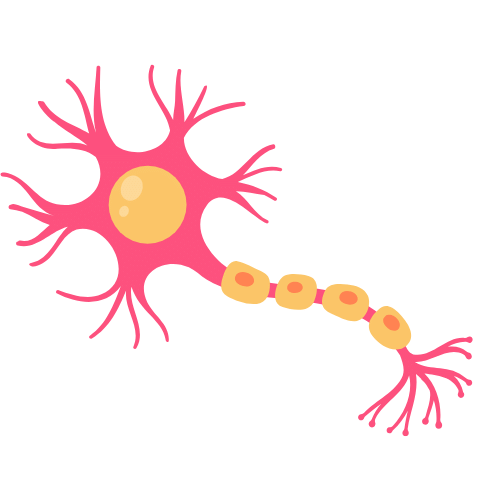
Final Words
The nervous system, a complex network of neurons, is integral to our everyday functioning. It governs our actions, thoughts, emotions, and even automatic functions such as respiration and heartbeat. Understanding the nervous system sheds light on human behavior and illnesses and paves the way for advancements in medicine and technology. Despite its intricacy, the nervous system exhibits remarkable resilience and adaptability. However, it’s not impervious to various disorders. Hence, leading a healthy lifestyle, including regular physical activity, a nutritious diet, and effective stress management, is crucial for optimal operation.
FAQs
Sources
- Cross, Cynthia. “10 Natural Ways to Strengthen Your Nervous System.” EMediHealth, 5 Feb. 2023, www.emedihealth.com/nervous-system/strengthen-nervous-system-naturally. Accessed 27 Oct. 2023. ↩︎
- “The 18 Most Common Nervous System Diseases – Wellnessbeam.” Wellnessbeam.org, wellnessbeam.org/the-18-most-common-nervous-system-diseases/. Accessed 27 Oct. 2023. ↩︎
- “Treatments for Nervous System Disorders.” Atlantic Medicine & Wellness, www.amwwall.com/functional-medicine-nj/nervous-systems/. Accessed 27 Oct. 2023. ↩︎
- “What Are 5 Disorders of the Nervous System?” MedicineNet, www.medicinenet.com/what_are_5_disorders_of_the_nervous_system/article.htm. Accessed 27 Oct. 2023. ↩︎
- JOHNS HOPKINS MEDICINE. “Overview of Nervous System Disorders.” Johns Hopkins Medicine Health Library, 2019, www.hopkinsmedicine.org/health/conditions-and-diseases/overview-of-nervous-system-disorders. Accessed 27 Oct. 2023. ↩︎
- Mayo Clinic. “Functional Neurologic Disorders/Conversion Disorder – Symptoms and Causes.” Mayo Clinic, 2017, www.mayoclinic.org/diseases-conditions/conversion-disorder/symptoms-causes/syc-20355197. Accessed 27 Oct. 2023. ↩︎




















